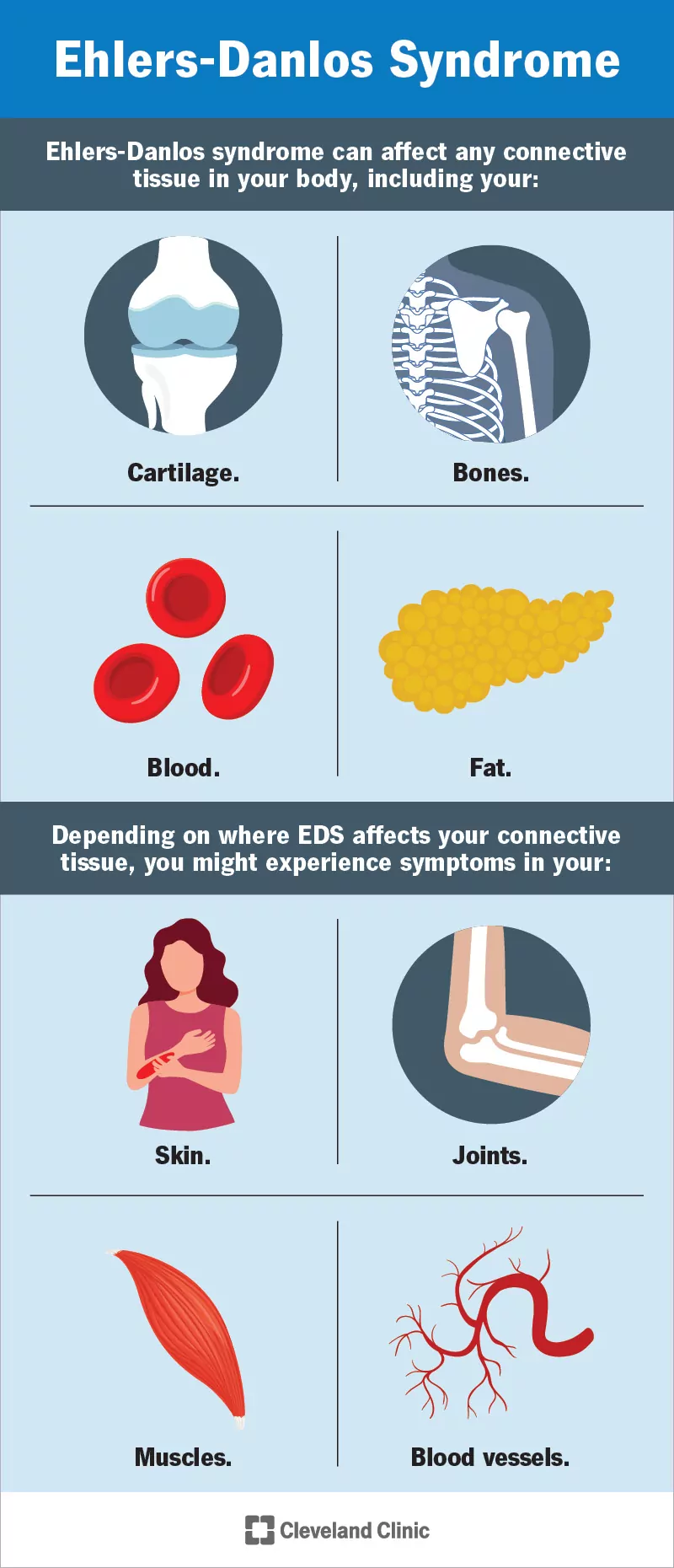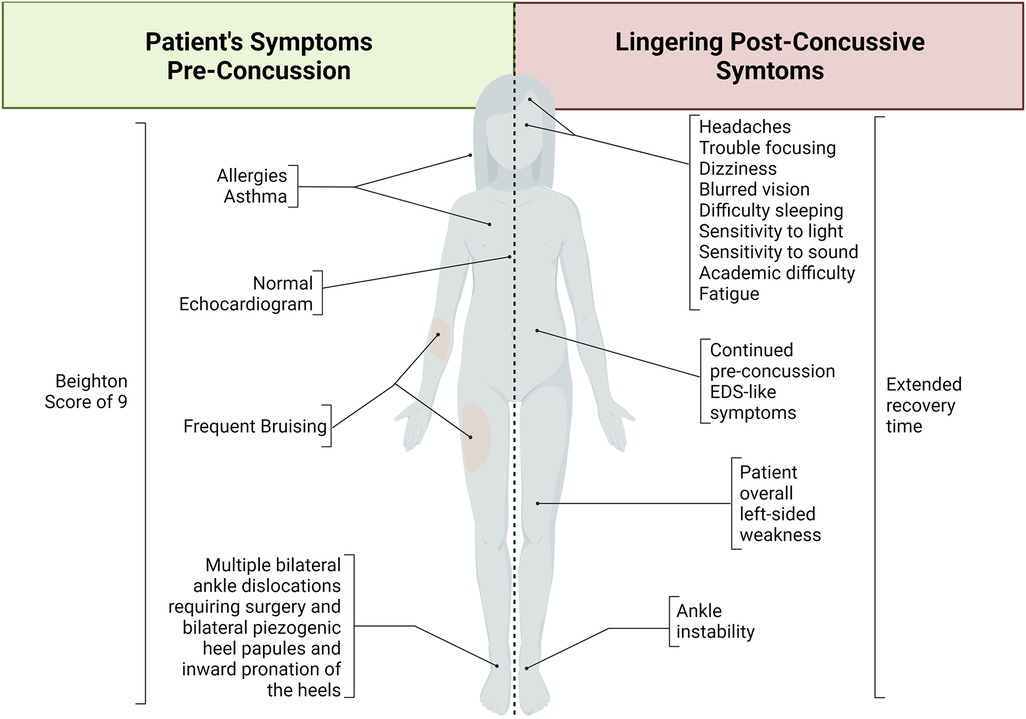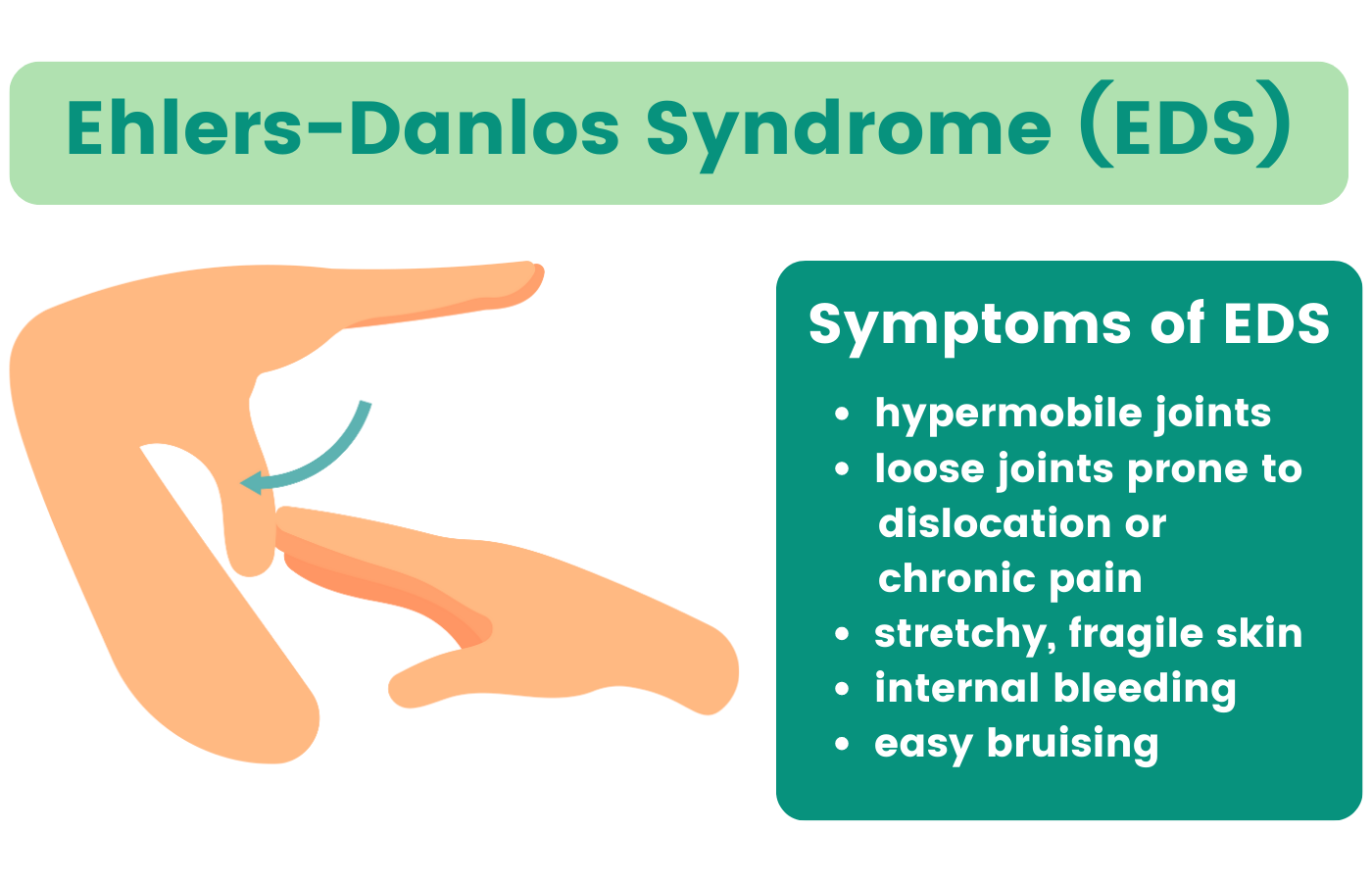Understanding Ehlers-Danlos Syndrome: A Rare Genetic Disorder
Table of Contents
- Ehlers-Danlos Syndrome (EDS) - Creative Med Doses
- What Is Ehlers Danlos Syndrome
- Ehlers-Danlos Syndrome - Causes, Types, Symptoms, Treatment
- The role of cutaneous manifestations in the diagnosis of the Ehlers ...
- Ēlersa-Danlosa Sindroms: Simptomi, Cēloņi Un ārstēšana - LV SFOMC
- Frontiers | Case report: Lingering post-concussive symptoms in a ...
- Ehlers Danlos Syndrome Children - Pregnant Health Tips
- What is Ehlers-Danlos Syndrome? | Greenberg Regenerative Medicine
- Hypermobile type Ehlers‐Danlos syndrome associated with ...
- POTS and EDS: Improving resources for Postural Orthostatic Tachycardia ...



What is Ehlers-Danlos Syndrome?



Causes and Symptoms of Ehlers-Danlos Syndrome



Diagnosis of Ehlers-Danlos Syndrome
Diagnosing EDS can be challenging, as the symptoms are similar to those of other conditions. A diagnosis is typically made based on a combination of physical examination, medical history, and genetic testing. The following tests may be used to diagnose EDS: Physical examination to assess joint mobility and skin elasticity Medical history to identify any family history of the condition Genetic testing to identify mutations in the genes responsible for collagen production Imaging tests, such as X-rays and MRI, to evaluate joint and tissue damage
Treatment and Management of Ehlers-Danlos Syndrome
While there is no cure for EDS, various treatments can help manage the symptoms and prevent complications. Treatment options include: Physical therapy to improve joint stability and strength Occupational therapy to develop strategies for daily activities Pain management, such as medication and alternative therapies Surgery to repair damaged tissues and joints Lifestyle modifications, such as avoiding heavy lifting and bending Ehlers-Danlos syndrome is a rare genetic disorder that affects the body's connective tissue. While the symptoms can be challenging to manage, various treatment options are available to improve quality of life. If you suspect that you or a loved one may have EDS, it is essential to consult a healthcare professional for proper diagnosis and treatment. With the right care and support, individuals with EDS can lead active and fulfilling lives.For more information on Ehlers-Danlos syndrome, visit the Genetic and Rare Diseases Information Center (GARD) website.
Note: The word count of this article is 500 words. The article is optimized for search engines with relevant keywords, meta description, and header tags. The content is informative and easy to understand, making it a valuable resource for individuals seeking information on Ehlers-Danlos syndrome.